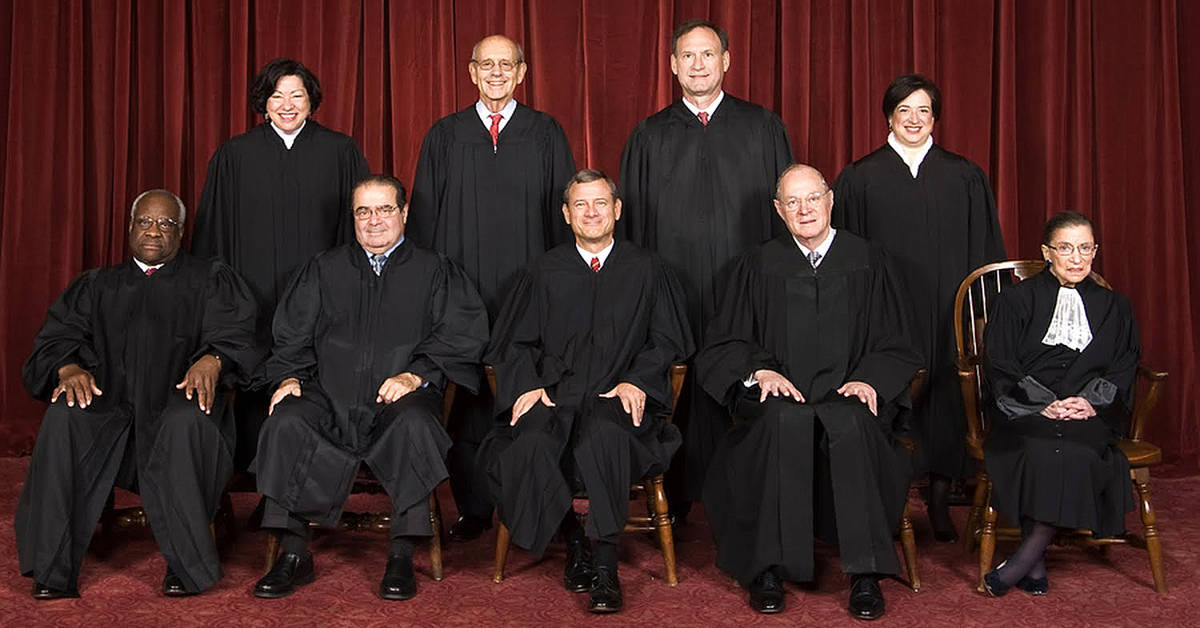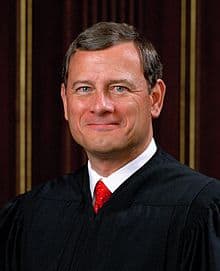|— Promoted by Human Rights Campaign —|
Although nothing at the Supreme Court is certain, the Court has given every indication that it is going to declare that bans on marriage equality are unconstitutional. It does have other options, but an anti-equality ruling seems unlikely given the Court's previous actions and a half step toward equality without embracing a nation-wide right to marriage makes no sense. As we wait for the Court's decision in Obergefell v. Hodges, here are 9 questions and answers on the case.
1. How will the Court rule?
Of course, I can't be sure. But the Court's actions over the last year suggest that a majority is ready to overturn marriage discrimination. Here is the evidence:
First, the Court has been moving in this direction for years. Romer, Lawrence, and especially, Windsor have eviscerated all arguments for permitting discrimination against gay persons. It is true that none of these cases expressly addressed marriage; that is why Obergefell is necessary.
Second, the Court then let stand pro-equality rulings from the Fourth, Seventh, and Tenth Circuits, which brought marriage equality to a majority of jurisdictions across the country. It is unlikely that the Court would allow marriages to occur only to then upend the privileges it let go into effect.
Third, after blessing these appellate court decisions, the Court started denying stays to states where district courts had declared marriage discrimination unconstitutional. At first, this step was a no-brainer: South Carolina, for example, which demanded a stay, is in the Fourth Circuit, whose pro-equality decision was denied review at the Court. Idaho, which didn't want gays to marry either, is in the Ninth Circuit, another pro-equality jurisdiction that did not get a hearing at SCOTUS. But then, the Court denied a stay to Florida and Alabama. Florida, in the Eleventh Circuit, and Alabama, in the Eighth Circuit, came to marriage equality through district court decisions. But their circuits had yet to rule on the matter. So, the Court was side-stepping the appellate court level and, by denying stays to pro-equality orders, bringing marriage equality to more states. It is simply unlikely–though, admittedly, not impossible–that the Court would reverse course at this point.
 2. Isn't it all up to Justice Kennedy?
2. Isn't it all up to Justice Kennedy?
Likely, yes. Justices Scalia, Thomas, and Alito are going to vote in favor of discrimination. Their questions at oral argument suggest as much, as does their voting history. Justices Ginsburg, Breyer, Sotomayor, and Kagan are solid pro-equality votes. Some readers may be holding out hope that Chief Justice Roberts, the jurist who “saved” Obamacare, would switch over to the pro-equality side for various legacy and strategic reasons. I disagree. But the Chief is not a likely ally. Justice Kennedy, whose tolerance for LGBT persons may be founded upon his experiences growing up, may be a conservative (the Court has moved to the right since the retirement of Justice Sandra Day O'Connor, the former swing vote). But on gay rights, he is an advocate for equality. He wrote Romer, Lawrence, and Windsor. He is responsible for the sometimes-muddled dignity jurisprudence that has so powerfully advanced the cause of LGBT equality over the last 20 years. Therefore, it is likely that Justice Kennedy will continue his leadership and vote for marriage equality.
 3. Might Chief Justice Roberts vote for marriage equality as well?
3. Might Chief Justice Roberts vote for marriage equality as well?
Some have suggested that the Chief, knowing Justice Kennedy would be a pro-equality vote anyway, may vote with the progressives to make the decision 6-3. This conforms to the Chief's desire for fewer sharply divided opinions and recognizes that, in 20 years, LGBT equality may be so normal that a “no” vote would look outdated and hateful. The young Chief likely does not want to be remembered as the guy who got it wrong on something so obvious. It would also give the Chief Justice the opportunity to write the majority opinion. This could be important: when the Chief Justice is in the majority, he can write the opinion if he wants; otherwise, it goes to the most senior justice if he or she wants it. If the Chief Justice writes the decision on a case going pro-equality anyway, he could narrow it or limit it how his conservative mindset sees fit.
That tortured “what if” scenario is miles south of possible.
If there are 6 votes for equality and those votes come from the Chief Justice and Justices Kennedy, Ginsburg, Breyer, Sotomayor, and Kagan, the Chief Justice can take the opinion for himself. But if he circulates a half a loaf decision that ruins Justice Kennedy's legacy and fails to go as far as the other five justices would want to go, they can break off and sign on to their own still-majority opinion. The Chief Justice could then write a concurrence if he wants, but I fail to see the point in that. Plus, the Chief Justice's prior writings do not suggest that he honestly believes the Constitution protects LGBT equality, generally.
4. There are two questions in the case: one about states recognizing out-of-state marriages, the other about in-state marriage. Could the Court decide that states have to recognize out-of-state marriages, but stop short of requiring states to perform them themselves?
It's possible, but unlikely. There are three reasons why this is probably not going to happen. First, if the Court says that it is unconstitutional for a state not to recognize an out-of-state same-sex marriage, then that will still create de facto nation wide marriage equality. So, why stop there? Second, the legal arguments for discriminating against gays on both questions are the same. If it is an affront to dignity and equality to fail to treat your residents as married when they are legally married elsewhere, it will be an affront to those same principles not to perform them in state. Third, this halfhearted decision is not going to go over well with the progressive wing of the Court. Justice Kennedy is likely to see this as a violation of his dignity principle. Signing on to this kind of decision would be a monumental failure of his imagination, intellectual honesty, and commitment to tolerance.
Click HERE for questions 5 through 9!
RELATED: Why Does SCOTUS Wait Until the Last Minute to Decide Gay Rights Cases?
Follow Ari Ezra Waldman on Twitter!
________________________________________________________________________________
This post is promoted by the Human Rights Campaign. HRC envisions a world where lesbian, gay, bisexual and transgender people are embraced as full members of society at home, at work and in every community.



